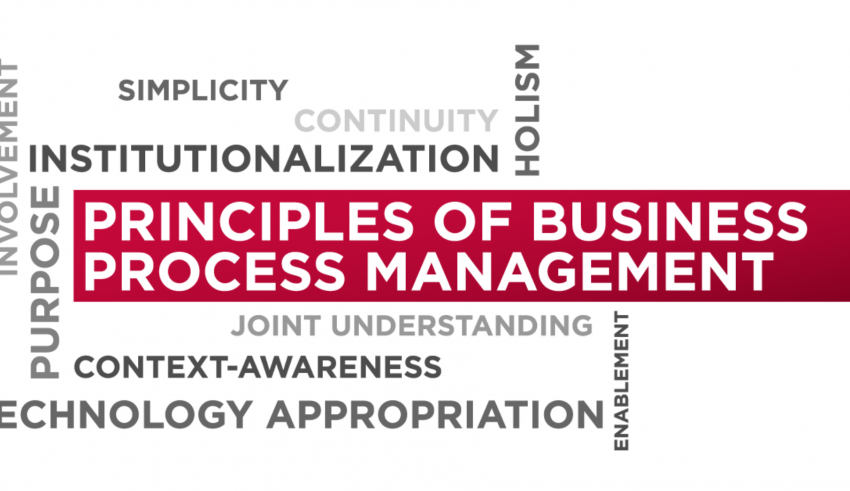
In most cases, you realize that most business process management studies conclude by having to present a list of factors like communication, efficient implementation consultants, the appointment of process owners, business management consultant, and also end-user training. Below are some ten principles that represent a set of capabilities that are essential for you and your business to master contemporary and future challenges in Business Process Management and hence attain business performance improvement.
- Principle of context-awareness

When you look into this matter keenly, you realize that many Business Process Management projects apply the same principles and cookbook approach in all of their organizational processes. And almost all the time, you realize that this leads to many project failures. What you need to know is that the principle of context-awareness about Business Process Management requires some consideration of the given organizational setting.
- Principle of enablement

When you decide to invest solely in Business Process Management tools, you stand a chance of acquiring components that may not understand and even not be able to achieve your process objectives fully. You need to invest in Business Process Management capabilities and see a more favorable outcome.
- Principle of continuity

In most cases, you see Business Process Management processes be introduced in businesses through short-term projects. The projects usually aim to solve specific inefficiencies that may occur within the business. It is, however, vital that you and your business go beyond attempting to achieve quick wins. Here is where the principle of continuity comes in, the process should be a permanent practice that in turn helps your organization to reap continuous gains.
- Principle of holism

You will realize that most of the time, Business Process Management only focuses on single organizational aspects. You can say it centers operational excellence of a single process, support process, or even a single department. This idea, in most cases, results to limited contributions of such projects. The principle of holism which stresses the need for a holistic scope of Business Process Management.
- Principle of involvement

What this principle does is that it ensures that all stakeholder groups involved with the business need to be active since introducing Business Process Management into your business usually means that a lot of chances are bound to take place.
- Principle of institutionalization

Some of the practices that can end up promoting silo behavior are: entrenchment habits and or adverse working circumstances. When Business Process Management is incorporated, it ensures that “horizontal discipline” is given its weight as due at all times.
- Principle of purpose

For every business to realize any form of growth, it needs to have some meaning. This is, in the long run, what everyone searches for in life. You need to adopt the principle and ensure to stay in line with your goal for the business.
- Principle of joint understanding

Most of the time, you find that only a few employees fully understand the process language that you use in your business. The principle of joint understanding is, therefore, necessary to ensure that Business Process Management can draw and introduce a language that everyone can easily understand.
- Principle of simplicity

What this principle does is that it suggests that the amount of resources that invested in the organization Business Process Management is economical.
- Principle of technology appropriation

When you incorporate this principle into your Business Process Management, you emphasize the need to make use of technology, especially Information Technology.







